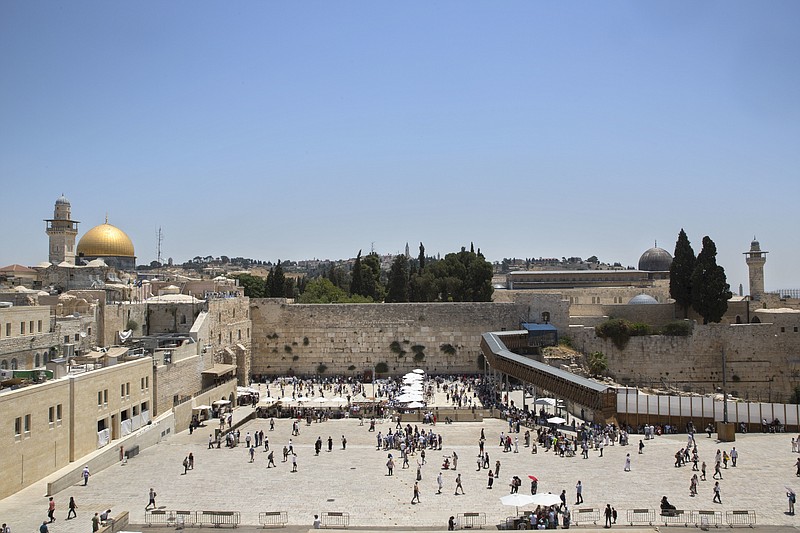JERUSALEM (AP) - A senior ultra-Orthodox Israeli lawmaker said Tuesday that protestations of liberal Jews over alternative access to Jerusalem's Western Wall are merely provocations since they don't even believe in the sanctity of the site.
Deputy Finance Minister Yitzhak Cohen of the Shas party said worship practices at the site - a retaining wall of the compound where the biblical Jewish temples once stood - have been in place for centuries and not everyone can "come and change the rules."
Leaders of the Reform and Conservative movements have canceled meetings with Prime Minister Benjamin Netanyahu to protest his government's decision to scrap plans for a mixed-gender prayer area. They're warning of an unprecedented crisis between Israel and the Jewish diaspora over the issue.
"The Western Wall doesn't interest Reform Jews. They don't believe in the Holy Temple," Cohen told Israel's Army Radio, expressing a view that many Reform Jews would take issue with.
Most American Jews belong to the more liberal Reform and Conservative streams and feel alienated by Israel's ultra-Orthodox authorities, who question their faith and practices.
A Western Wall compromise was reached after three years of intense negotiations between Israeli and American Jewish groups and the Israeli authorities, and was seen at the time as a significant breakthrough in promoting religious pluralism in Israel, where ultra-Orthodox authorities govern almost every facet of Jewish life.
But the program was never implemented, as powerful ultra-Orthodox members of Netanyahu's coalition government raised objections.
Sunday's Cabinet decision sparked a rare display of public anger from American Jewish groups, who hinted that the move could undermine their longstanding political, financial and emotional support for Israel. Ultra-Orthodox leaders in turn ramped up their criticism and said diaspora Jews would have no say in how religion was conducted in Israel.
Education Minister Naftali Bennett, who also oversees diaspora affairs, said the crisis was ill-timed.
"The sense of the American Jewish community is that they were given a slap in the face from the Israeli government and that they ostensibly are not wanted here," he told Army Radio. "Mistakes were made, both in the timing and in the style and there is also a disinformation campaign saying that the Western Wall is ostensibly closed to world Jewry. That's not true."
